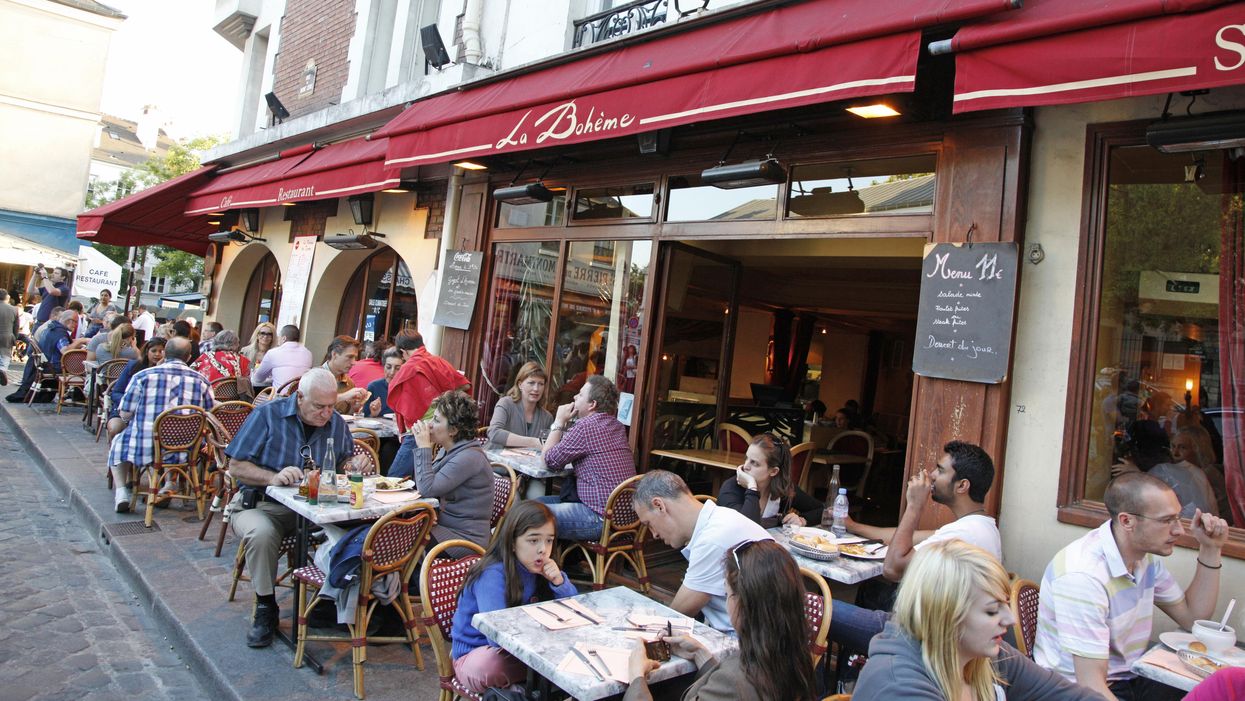It's Illegal To Eat At Your Desk In France & This Might Be More Shocking Than Sweden-Gate
The law was introduced over a century ago.

People sitting at a cafe in France.
France has a huge bistro culture, and if you've ever had a chance to visit the European country, it's hard not to notice the lunchtime rush that takes over bustling streets and local food shops.
It turns out the reason why French people rush to their favourite corner restaurants (especially during lunchtime) is that it's technically illegal to eat lunch at the workplace in France, reports the NPR.
Under the French labour code, employees are not allowed to eat at the workplace. This law came into action over a hundred years ago for sanitary reasons, according to the NPR podcast Rough Translation.
It added that the ban was first introduced in 1894 when illnesses were widespread, and it was common for workers to eat in closed-off working environments. This allowed phosphorus fumes to develop and airborne diseases, such as tuberculosis, to spread easily.
So the solution was to completely ban people from eating in the workplace and instead send them to the outside world to grab a bite instead. When workers were out for lunch, windows were opened to allow for proper ventilation.
However, the law wasn't always welcomed with open arms. People were set in their ways and weren't too fond of the government telling them to stop bringing food to work, as they had done for years.
In particular, women seemed to be the most affected by the ban. According to reports, the harassment of women on the streets went up.
Women even described the enforcement of the law as "tyrannical," and it was the driving cause behind the first women's strike that seamstresses organized.
However, according to Martin Bruegel, a food-culture historian, the workplace in the 1890s was full of health hazards, so the law was essential to "flushing the air just as one flushes the toilet," during the lunch break.
Even in department stores, there were more microbes and germs per cubic foot than outside, according to Bruegel.
Fast forward to today, the long-running ban is not only widely accepted but is a valuable and celebrated part of French culture.
One thing is for sure, Europe knows how to keep us on our toes with its odd traditions and culture. First, it was the Swedengate; and now, this.
For those curious about Swedengate, a recent Reddit post about Swedish people not feeding house guests went viral. That's mostly because it's wildly different from how other cultures treat guests.
Anyways, back to French labour laws.
The ban is now widely seen as a perfect opportunity to take a well-deserved break and relax from a stressful work day.
The change of scenery and pace during the 90-minute rendez-vous with food is encouraged in French culture.
However, the law that once began because of a health crisis also almost came to an end because of another. COVID-19 almost ended this century-old law (like many things in our day-to-day lives).
In February of 2021, the much-loved law was put on a temporary pause for obvious health and safety reasons. Getting rid of the law completely was put on the table as an option for the first time.
Thankfully, that option was never pursued. Bruegel fought against it by writing about the importance of the law in French society.
"People are just simply happier when they take some downtime during the workday. It's good for their well-being," he explained. "People who eat together are able to talk about issues, and they can work out tensions or different opinions. They create a culture in which having different points of view is possible."
This isn't the only labour law in place that puts employees' mental health and well-being first. In France, it's also illegal to reply to work emails and calls on weekends.
Cue that scene from Emily in Paris.
North America could definitely learn a thing or two from our European friends regarding labour laws.